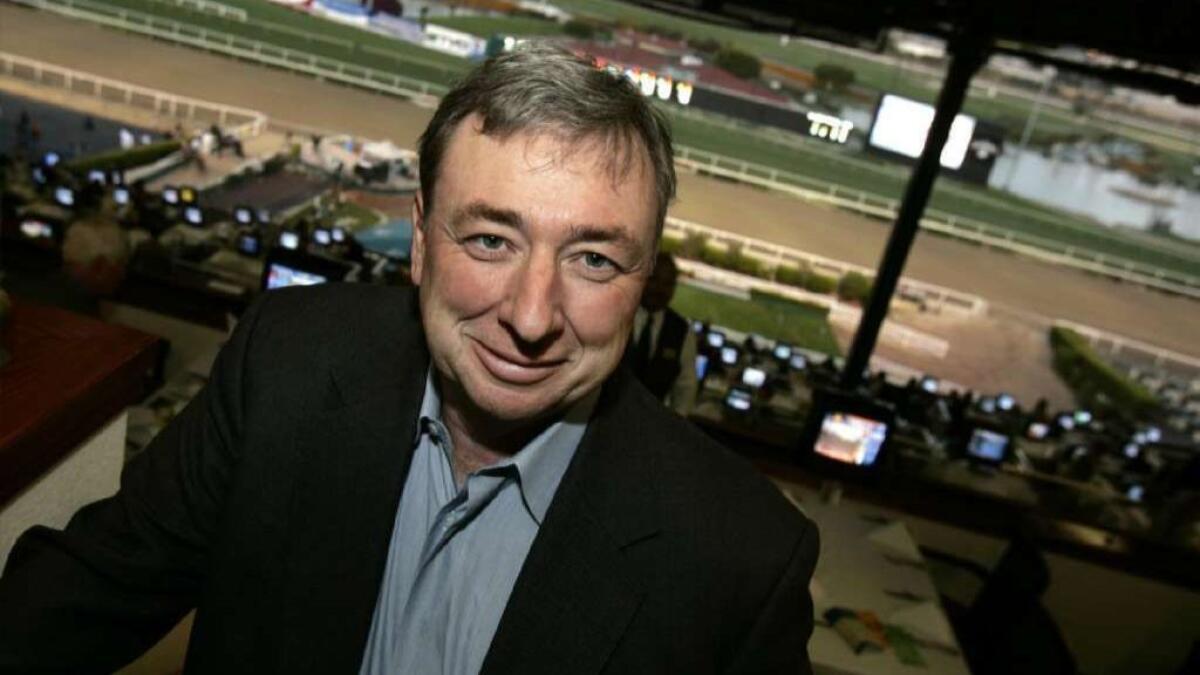In surprise move, CFPB appeals judgment against CashCall slashed by judge

- Share via
When President Trump appointee Mick Mulvaney took over as interim director of the Consumer Financial Protection Bureau in November, he pledged to use a light hand, saying the bureau works for lenders just as much as it works for consumers.
Since then, the bureau has dropped a lawsuit against lenders affiliated with a Northern California Native American tribe, sought to roll back rules reining in payday lenders and, most recently, asked Congress to curb the bureau’s power to make new rules.
And yet the bureau took steps last week to continue legal action against high-cost Orange County lender CashCall Inc., a move that consumer finance attorneys called surprising and seemingly out of keeping with Mulvaney’s marching orders.
The CFPB filed documents saying it plans to ask the U.S. 9th Circuit Court of Appeals to reconsider a recent decision in which a federal judge ordered CashCall to pay a fine of $10.3 million for issuing loans with illegally high interest rates. That judgment, handed down in January, was seen as a win for CashCall and as something of a rebuke to the CFPB, which had asked for penalties and restitution of $287 million.
Though the bureau’s argument to the appellate court has not been filed, the documents indicate it plans to appeal parts of the ruling that went against the CFPB’s position, implying it could be seeking stiffer penalties against the company and its owner, J. Paul Reddam.
“It seems inconsistent with acting Director Mulvaney’s directives,” said Cash Call attorney Thomas Nolan, who noted his client already has paid the smaller judgment. “It came as a complete surprise to us. For the CFPB to continue this pursuit of Mr. Reddam and CashCall, I don’t think it’s the finest hour for the CFPB.”
The bureau did not respond to requests for comment.
The CFPB sued CashCall in 2013, when Obama-appointee Richard Cordray was still in charge. Under Cordray, the bureau was known by its supporters as a dogged defender of consumers — and by the finance industry as an overly aggressive and unaccountable agency.
CashCall, headquartered in Orange, had been making loans with interest rates sometimes topping 150% in concert with a firm based on a Native American reservation in South Dakota. CashCall argued that because the loans were originated by a tribal entity, they did not have to obey usury laws in numerous states that cap interest rates.
But the CFPB said that the tribal relationship was a sham and that CashCall was the real lender all along. The bureau also argued that by issuing and collecting on loans that broke state laws, CashCall had also violated federal consumer protection laws that forbid unfair, deceptive or abusive practices.
U.S. District Judge John Walter in Los Angeles agreed with the CFPB’s position, but his final judgment in January was friendlier to CashCall.
Walter wrote that although CashCall’s loans charged illegally high interest rates, the company disclosed its rates so borrowers knew or should have known what they were getting into. Based on that, he rejected the CFPB’s request that the company pay $235.6 million in restitution.
The bureau also wanted CashCall to pay a penalty of $51.6 million, a figure based on sentencing guidelines for recklessly violating consumer protection laws. But Walter said the bureau did not prove CashCall had been reckless and instead ordered penalties of just $10.3 million.
Donald Putterman, a San Francisco attorney who follows tribal and consumer lending issues, said the judgment was a win for CashCall and for critics of the bureau.
“What Judge Walter had to say was pretty cutting at the CFPB,” Putterman said. “At some point, someone from CashCall ought to go to Mulvaney and say, ‘What’s going on here?’”
He speculated that perhaps Mulvaney may not have known about or specifically signed off on an appeal filing. He also suggested that there could be some upside for CashCall and that the bureau’s appeal could be aimed at ultimately reversing the ruling against the company and its tribal lending arrangement in entirety.
Nolan allowed that’s a possibility, saying that the appeal opens the door to relitigating a key question in the case: whether the CFPB can allege violations of federal consumer protection laws based on apparent violations of state laws.
“That will be up for grabs in the appeal,” he said.
But Quyen Truong, a partner at Stroock & Stroock & Lavan and a former deputy general counsel at the CFPB, said she thinks it’s unlikely that the appeal will have any positive result for CashCall.
If the bureau’s intent were to get the ruling and judgment against the company thrown out, she said it probably would have urged CashCall to appeal.
“At that point, the CFPB could say that it doesn’t oppose CashCall’s argument or that it believes there’s merit to CashCall’s position,” she said. “The chance for an upside for CashCall at the 9th Circuit level is limited.”
Rather, she said she believes the bureau’s appeal is a sign that, even under Mulvaney’s leadership, the bureau will continue to be aggressive in some cases.
“The industry should not count on a wholesale retrenchment by the CFPB on all its enforcement activities,” she said.
Follow me: @jrkoren
More to Read
Inside the business of entertainment
The Wide Shot brings you news, analysis and insights on everything from streaming wars to production — and what it all means for the future.
You may occasionally receive promotional content from the Los Angeles Times.










